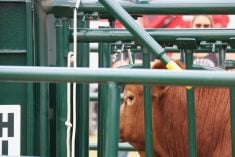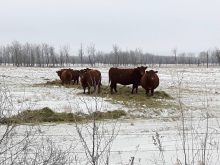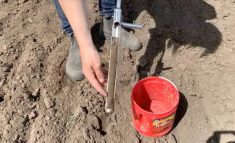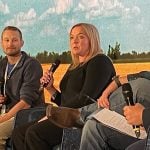I was a cook in a tree planting camp for three summers in my early 20s. It’s been 10 years since I first packed up my Pontiac Sunfire and headed north from Vancouver to Prince George, B.C. No experience in my adult life has had such a profound impact on me. It’s one of the reasons I am now a farmer.
I started farming full-time in May 2011. It was the first time in four years that May hadn’t meant waking up at 4:30 a.m. to make breakfast for 50 sleepy faces. Faces that would return dirty and hungry 12 hours later, looking for another hot meal. Those summers challenged me and I loved them. I was happy to be farming, but I was also sad not to be in the bush with a crew. I knew I would only ever be back there for visits. Fortunately, the lessons I learned have stayed with me, even as the memories of peeling pounds of potatoes and flipping hundreds of pancakes have faded away. I thought I’d pen a few columns about the lessons I learned being a cook and how they translate into my life today as a farmer and as a person.
Read Also

Avoid these thought traps when investing
Investing for Fun and Profit: Let’s review a list, by renowned fund manager Peter Lynch, of the most dangerous things that stock market investors can say to themselves, or to others.
Most camp cooks start as assistants before moving to the head cook position. I made the foolhardy leap right to the top of the food chain, when I told my eventual boss that “I could probably do it” when I interviewed for the job.
I had never cooked for more than 10 people before and never farther than 10 minutes from a grocery store, so I was a wee bit on the green side when I arrived in the bush. Although the company I worked for had resources for new cooks and I got some tips from more experienced cooks, when my assistant (also a rookie) and I woke up the first full day on the job, there was no one there to backstop us.

We worked from 4:30 a.m. to 8:30 p.m. and only stopped then because my boss dragged us by our dishpan hands out of the kitchen, saying we had to attend the all-camp safety meeting. Now, I’ve probably worked some days longer than that in my farming career, but at that point it was the hardest working day of my life. I’d gone from a desk job to being on my feet for an entire day and there is no training for standing for long periods except standing. Not to mention the mental load of basically having no idea what I was doing, but knowing it had to be done when the crew returned.
Now to get faster
At the end of the first day, I looked at my assistant, Erin, and said, “We cannot maintain this for three months. We will die. I don’t care what happens tomorrow we are going to sit down for half an hour.” So we did. And we did the next day, too. And every day we sat around a little longer, until by the end of summer we had four full hours of leisure in the middle of most days. Did we neglect our duties to create this free time? Nope. We got faster. Tree planters learn to eliminate any extra movements in the act of planting a tree and then shave seconds off of every necessary movement, and in the same way I got more efficient and learned to do more in 12 hours than I did the first day in 16. I would’ve gotten quicker at chopping vegetables and mixing cookie dough no matter what, but I think realizing the first day that rest was a necessity set me more quickly onto a path of efficiency.
I remember joking that first day on the job that I wished I was a smoker, because then I would have to stop working for a few minutes and not do anything. While I don’t endorse addictive habits, it’s hard to do much else when you’re smoking a cigarette, and that has to be at least part of the comfort of the habit. Instead of jonesing, I tried to give myself a few minutes every day where I let my mind go slack. For a few minutes I would resist the urge to multi-task, instead I would just sit and stare into space, calming my mind — which was normally racing with thoughts about the next tasks or my weekly shopping list.

Everyone needs a break on the farm, too. Rest days, even in high stress seasons of the year, are restorative and make you more efficient — and more pleasant to be around — on the working days. Sometimes we driven people need to inject a little idleness into our day. Shut down the tractor, the spreadsheets, Twitter, the newsfeed, and more importantly the treadmill of your own thoughts and be present in your rest so you can be efficient in your work.
















